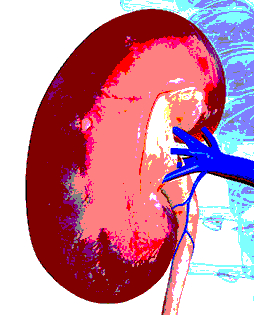DNA test to predict transplant failure
 A new technique developed in Australia could help predict the likelihood of kidney transplant rejection.
A new technique developed in Australia could help predict the likelihood of kidney transplant rejection.
Researchers at Sydney's Westmead Institute have identified a set of 13 genes that appear to predict the development of kidney fibrosis in the months after transplantation.
“Identifying who is at risk [of rejection] and what to do about it has been a challenge,” says lead author of the new study, Professor Philip O'Connell.
The research has been published in the journal The Lancet.
The only way to spot chronic injury in transplanted kidneys right now is to study samples of it after the implant.
But by this stage, irreversible fibrosis has usually started.
Prof O’Connell says that by testing for the key genetic markers within three months of the transplant, alternative treatments should be available before the damage is done.
“Early risk detection would mean we can try different strategies to support the graft at a time when we can make a difference,” he told Fairfax.
“We are probably about five years away from using this tool in a routine clinical setting.
“Our next step is to undertake clinical trials to see what treatments will help.
“We are hoping this will lead to increased kidney graft survival over the long term. This would mean less mortality, fewer people returning to dialysis and people having a better quality of life,” Prof O’Connell said.
Kidney transplants are one of the most common transplant operations in Australia, with about 1,000 Australians receiving them each year, and over 10,000 living with a functional transplant right now.
But with kidney-related diseases killing more people than breast or prostate cancer each year, any effort to improve the success rate will save lives.








 Print
Print